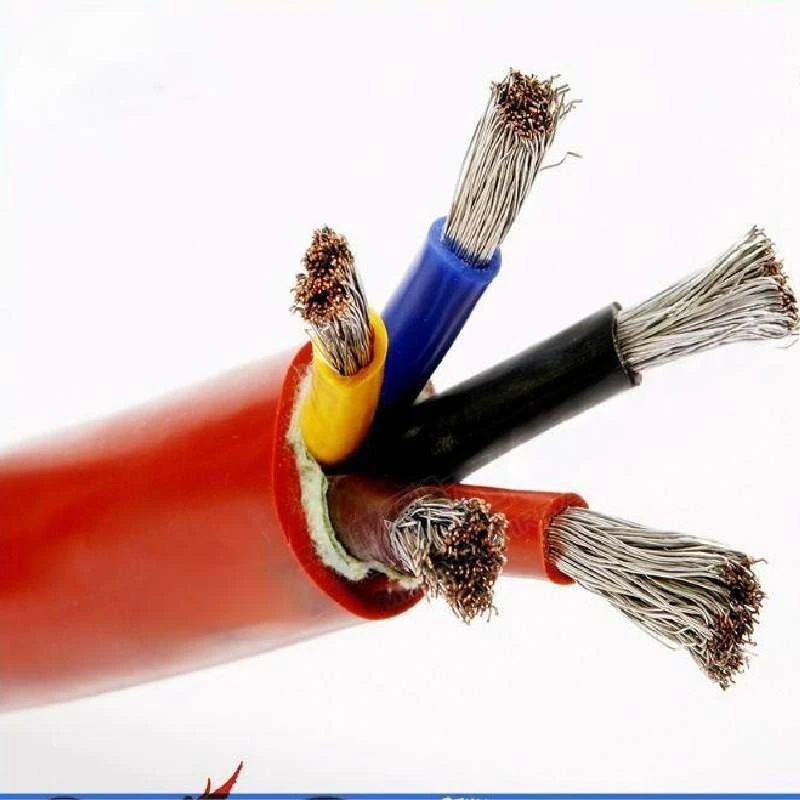Dec . 11, 2024 09:27 Back to list
Understanding the Benefits and Uses of Copper Cable Wiring in Modern Technology
The Importance of Copper Cable Wire in Modern Telecommunications
In today's world, where connectivity is vital, copper cable wire plays an essential role in enabling efficient communication and data transfer. From telecommunications to household electrical systems, copper wiring serves as a backbone that supports a wide range of applications. The inherent properties of copper make it a preferred choice in various industries, providing reliability and performance crucial for modern technology.
Properties of Copper
Copper is known for its excellent electrical conductivity, which is one of the key reasons for its widespread use. It has a conductivity rating of approximately 59.6 x 10^6 S/m, making it one of the best conductive metals available. Furthermore, copper is not only effective at conducting electricity, but it also exhibits great thermal conductivity, which ensures that devices do not overheat when in operation. These properties make copper wiring an ideal choice for high-speed data transfer and energy-efficient systems.
Another vital aspect of copper cable wire is its durability. Copper is resistant to corrosion, which helps maintain the integrity of electrical connections over time. This characteristic is particularly important in outdoor applications where exposure to environmental elements can significantly degrade performance. Additionally, copper is ductile, allowing it to be drawn into thin wires, making it highly versatile for various applications, from power lines to intricate circuit boards.
Applications of Copper Cable Wire
Copper cable wire finds its application in numerous sectors. In telecommunications, it is extensively used in the construction of telephone lines and broadband networks. The twisted pair configuration of copper cabling helps minimize interference and crosstalk, ensuring clear signal transmission. As a result, it has become a standard in both residential and commercial communication systems.
copper cable wire

Moreover, in the world of modern networking, copper cables, particularly Ethernet cables, continue to play a significant role. Despite the rise of fiber optic technology, copper cabling remains a prevailing choice for local area networks (LANs) due to its cost-effectiveness and ease of installation. Typical categories include Cat5e, Cat6, and Cat6a cables, each designed to support different bandwidths and data transfer rates, catering to the need for speed in today’s digital age.
Challenges and Alternatives
While copper cable wire boasts many advantages, it is not without its challenges. The primary concern is the cost of raw copper, which can be significantly high, making large-scale projects more expensive. Additionally, copper cables are susceptible to electromagnetic interference (EMI), which can affect performance in environments with high electrical noise. This has led to increasing interest in alternative materials such as fiber optics, especially for long-distance communication, due to their high speed and immunity to interference.
However, fiber optics, despite their clear advantages, come with their own set of challenges, including higher installation costs and fragility. Therefore, the two technologies are often used in conjunction, leveraging the strengths of each to create robust and efficient communication networks.
Conclusion
Copper cable wire continues to be a cornerstone of modern infrastructure, underpinning vital systems that support our telecommunications and electrical needs. While advancements in technology present new materials and methods, the combination of conductivity, durability, and versatility ensures that copper remains indispensable. As the demand for faster and more reliable connectivity grows, the significance of copper cable wire will undoubtedly persist, adapting to new challenges and opportunities in an ever-evolving digital landscape. Whether in telecommunications, electrical systems, or automotive applications, the enduring qualities of copper make it a material for the future.
Share
-
Reliable Wafer Type Butterfly Valves for Every IndustryNewsJul.25,2025
-
Reliable Flow Control Begins with the Right Ball Check ValveNewsJul.25,2025
-
Precision Flow Control Starts with Quality ValvesNewsJul.25,2025
-
Industrial Flow Control ReliabilityNewsJul.25,2025
-
Engineered for Efficiency Gate Valves That Power Industrial PerformanceNewsJul.25,2025
-
Empowering Infrastructure Through Quality ManufacturingNewsJul.25,2025